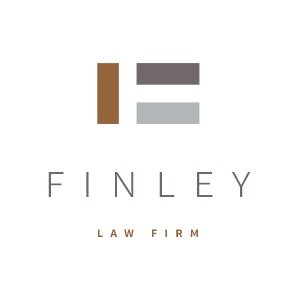Best Trusts Lawyers in Des Moines
Share your needs with us, get contacted by law firms.
Free. Takes 2 min.
List of the best lawyers in Des Moines, United States
About Trusts Law in Des Moines, United States
Trusts law in Des Moines, United States, falls under the purview of Iowa state laws. A trust is a legal entity created by a grantor (also known as a trustor or settlor) through which assets are placed under control of a trustee for the benefit of beneficiaries. Trusts can be used for various purposes, including estate planning, asset protection, and wealth succession. They often help to avoid probate, protect privacy, and safeguard assets from estate taxes or creditors.
Why You May Need a Lawyer
Trusts can be complex and require careful planning and management. You may need a lawyer to help you design and establish a trust, manage assets, plans for estate taxes, and avoid possible legal setbacks. Trusts lawyers can guide you in choosing the right type of trust for your specific situation. If disputes arise, you may also need a lawyer to interpret and enforce the provisions of a trust.
Local Laws Overview
Iowa state laws, which govern Des Moines, recognize several types of trusts. Key aspects of these laws include: 1) The requirement that trusts must be created for a lawful purpose; 2) The requirement that the person establishing the trust must have 'legal capacity'; 3) The requirement that the trust must be for the benefit of the beneficiaries, and 4) The provision that a trust is valid only if there is a trustee to administer it. Trusts can either be revocable or irrevocable and can be changed with the consent of the grantor and all beneficiaries.
Frequently Asked Questions
1. What are the benefits of establishing a trust?
Trusts can provide multiple benefits such as avoidance of probate, efficiency in estate administration, privacy, potential tax advantages, and protection of assets from creditors.
2. Can a trust be changed or revoked?
In Des Moines, most trusts are revocable, which means they can be changed or terminated by the grantor during their lifetime. However, if a trust is created as irrevocable, it generally cannot be changed or terminated without the consent of all beneficiaries.
3. Who can be a trustee?
A trustee can be any legally competent person or corporate entity, such as a bank or trust company, that the grantor trusts to administer the trust according to its terms.
4. How does a trust end?
A trust typically ends upon the occurrence of a specified event, such as the death of the grantor or the distribution of all the trust's assets. The terms of how a trust will end should be defined in its creation documents.
5. Does having a trust prevent the need for a will?
While a trustcan cover many aspects of estate planning, having a will remains important. Generally, a will is necessary to cover any assets that have not been included in the trust.
Additional Resources
The Polk County Courthouse in Des Moines might provide general information on trusts and estate planning. The Iowa State Bar Association would be another valuable resource for those seeking legal advice or assistance on trusts.
Next Steps
If you need legal assistance with your trust, seek the services of a trust lawyer in Des Moines with experience in estate planning. It might be worth booking an initial consultation. During the consultation, you can discuss your needs, potential costs and understand the lawyer's experience better. Prepare for this consultation by gathering relevant information including financial documents and your goals for the trust.
Lawzana helps you find the best lawyers and law firms in Des Moines through a curated and pre-screened list of qualified legal professionals. Our platform offers rankings and detailed profiles of attorneys and law firms, allowing you to compare based on practice areas, including Trusts, experience, and client feedback.
Each profile includes a description of the firm's areas of practice, client reviews, team members and partners, year of establishment, spoken languages, office locations, contact information, social media presence, and any published articles or resources. Most firms on our platform speak English and are experienced in both local and international legal matters.
Get a quote from top-rated law firms in Des Moines, United States — quickly, securely, and without unnecessary hassle.
Disclaimer:
The information provided on this page is for general informational purposes only and does not constitute legal advice. While we strive to ensure the accuracy and relevance of the content, legal information may change over time, and interpretations of the law can vary. You should always consult with a qualified legal professional for advice specific to your situation.
We disclaim all liability for actions taken or not taken based on the content of this page. If you believe any information is incorrect or outdated, please contact us, and we will review and update it where appropriate.











